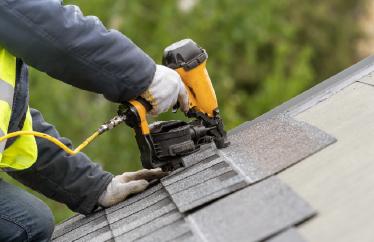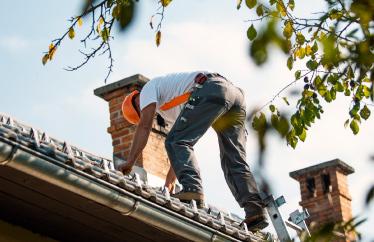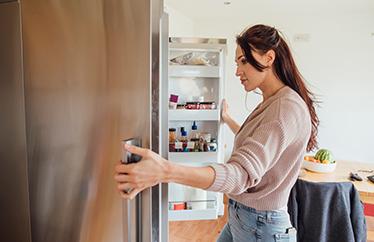How You Can Help Minimize the Spread of Coronavirus

As the spread of coronavirus COVID-19 puts the routine of daily life on hold, many of us are moving indoors, homebound and trying to keep ourselves and loved ones healthy. So, it’s more important than ever that your home is indeed a safe and healthy environment, which is relatively easy to achieve if you know where to start.
Our team collected measures recommended by experts to help you on your way to a healthy “social distancing” period.
Keep yourself educated. News and information about the coronavirus is changing by the hour, so staying up to date from a credible source like the CDC plays a key role in helping to minimize its spread. Johns Hopkins Medicine also shared a “coronavirus at a glance” reference to help make sure you are equipped with the right data for these challenging times. Familiarizing yourself with the symptoms and signs could help identify and mitigate the effects on your health or that of your loved ones.
Symptoms are said to appear within 14 days of exposure and can include shortness of breath, coughing and fever. And although about 80% of the affected population will recover without needing medical attention, that still means 2 people out of 10 could likely require hospitalization.
The World Health Organization has provided a “Myth Busters” reference to keep you properly informed amidst the swirl of information available. Meanwhile, check reliable news sources for the latest on how the COVID-19 outbreak will affect your daily life.
Do your part to “flatten the curve. ”The “curve” refers to the bell-shaped line graph that charts the disease’s rate and extent of progression. Read: a steeper, higher curve means more rapid and extreme progression. “Flattening” this curve refers to diminishing these measurements. What this means is if there are fewer people infected at any one time (a flatter curve), there will be less strain on our hospitals and medical personnel, potentially giving them greater ability to combat the virus. CBS News’ Chief Medical Correspondent, Dr. Jon LaPook, affirms that most of the measures currently recommended by officials are, indeed, effective in flattening the curve.
The CDC recommends designating one room in your home for anyone who may become ill so some distance can be maintained from those who are healthy.
Wash. Your. Hands. And yes, there’s a right and wrong way to do this. Multiple studies have been conducted to determine the right way – amount of time, temperature of water, types of cleanser – and the Cleveland Clinic maintains the assertion that 20 seconds is the optimal length of time for actual scrubbing. The Centers for Disease Control (CDC) goes a step further to qualify that there are different recommendations for different types of handwashing. For instance, if you’ve handled raw meat while cooking or come into contact with kids’ skinned knees, longer, more vigorous washing is required.
The generally accepted standard for 20-second handwashing is the length of the “Happy Birthday” song, sung twice. However, if it’s not your birthday, or you have varied musical tastes, there are several resources for other hits’ choruses that will do the trick.
How to rid surfaces of viruses and other germs. The CDC recommends that frequently touched surfaces in your home be cleaned daily using soap and hot water. Consider which areas of your home you touch the most – doorknobs, sink faucets, countertops, remote controls, light switches – and be sure to both clean and disinfect them.The American Chemistry Council Center for Biocide Chemistries has amassed a list of products that will specifically combat COVID-19 for easy reference. For draperies, bedding and other soft surfaces that can be removed and laundered, follow the manufacturer’s cleaning instructions and avoid shaking dirty laundry to prevent the spread of pathogens.
If you’re trying to avoid public and crowds, like markets and grocery stores that are largely running very low on household cleaning products, there are numerous methods of creating your own products at home, from cleaning wipes to disinfecting spray. Not only will this save you money, but it will help pass the time at home.
Social Distancing. What does this mean? Literally, it means physically distancing ourselves from others by at least six feet. The Cleveland Clinic explains that avoiding large gatherings and places where people congregate is the best choice, but allowing at least six feet of distance between yourself and others will help if you do need to be around other people. The virus is thought to be spread by close person-to-person contact and through droplets transmitted from coughing or sneezing. If you maintain distance from others, you can help minimize the transmission. If you’re in your own home (and have taken steps to sanitize your surroundings), and are thinking about having guests over, you may want to consider whether they have been exposed at some point and decide carefully.
Hippo Insurance Services cares about you and your home. We do not claim to be experts on the Coronavirus but want to provide you with a resource to guide you, your family and your home through this difficult time. If you have questions, please use credible resources such as the Centers for Disease and Control (CDC) to find answers. If you think you or a loved one is sick, please quarantine yourselves and call your doctor, or call 911 in an emergency.



